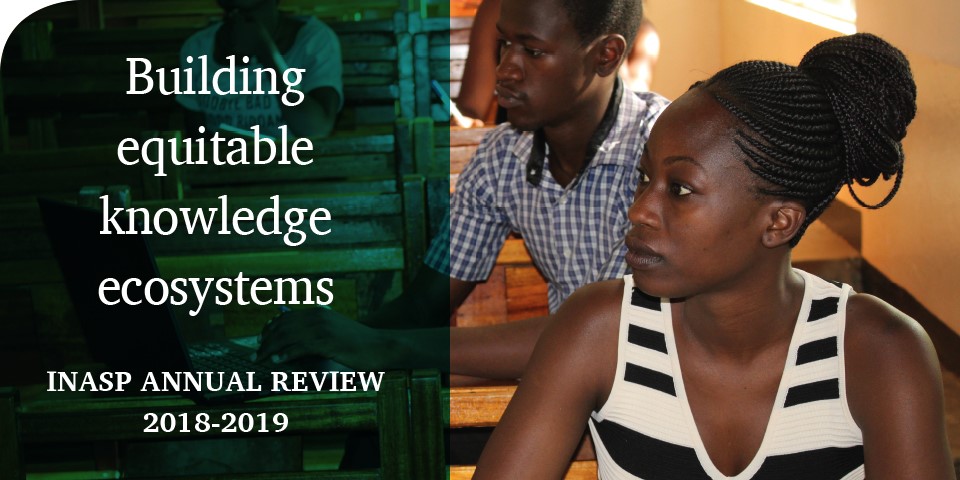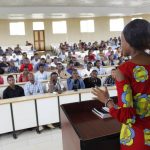
Building equitable knowledge ecosystems: A year in review
This year’s INASP annual review looks at the theme of equity within research & knowledge: a cross-cutting aim and principle in everything that we do.
Central to INASP’s mission is the recognition that research and knowledge systems must be equitable in order for diverse talents and expertise to be bought to bear on the most pressing development challenges. When considering our key aims of supporting vital Southern knowledge and research in the fight against the world’s most intractable problems, issues of inequity manifest on many levels.
At the systemic level, development agendas are largely set and funded in the North and are informed by research that is published and produced by Northern institutions who have access to better facilities and resources than Southern counterparts.
Our annual review this year details projects that address these systemic inequities; such as our work with Southern library consortia to ensure that researchers have access to journals. Anne Powell and Jon Harle take an in-depth look at the evolution of our approach to supporting access to knowledge, and how national library purchasing consortia in 21 countries are now taking on this work themselves.
We also share the latest on our Journal Publishing Practices and Standards (JPPS) project, which has demonstrated real impact in the standard of publication practices among Southern journals. Improving the credibility of Southern journals helps researchers to overcome some of the systemic barriers faced in disseminating their knowledge.
Within the Global South, inequities are visible at an organizational level. A strong system requires a mix of different institutions, who are all able to contribute to research and knowledge. However, resources are often clustered around flagship capital-city institutions, which, means that particular research questions, institutions and people are less able to access funding and opportunities than others. In government, there is often insufficient time or resource to use evidence effectively, or it is not prioritized by leadership and organizational cultures.
The TESCEA partnership is helping to redress some of this imbalance by supporting rural universities in Uganda and Tanzania to develop new pedagogical approaches that develop young people’s skills to think critically and use knowledge for social change.
Our work with government agencies and policy-making organizations to make better use of evidence continues to help address issues of power and voice in development.
Finally, inequities persist at an individual level, as researchers, policymakers and students find themselves locked out of the conversation while opportunities accrue to a smaller number of people – more often men. Cutting across all that we do is our support for enabling individuals to work, learn and advance their careers, regardless of gender or background.
Jen Chapin reflects on why gender responsive programming has an important part to play in the TESCEA project and we summarize key findings from discussions about gender parity in higher education and the research sector. Our work on our global platforms over the past year attracted encouraging numbers of women participants in our extremely successful online course offerings.
Joanna Wild expands on the theme of online courses, looking at the role of technology in capacity development, as an enabler for reaching greater numbers of people and broadening participation – including improving gender balance and reaching researchers with disabilities and hard to reach contexts.
Linking all of these themes together, Femi Nzegwu reflects on our monitoring, evaluation and learning activities in partnership with other organizations. Meanwhile, John Young explores an emerging area of work in supporting research uptake, strengthening the connections between the production and sharing of research and its end use in policy and practice.
Elsewhere, we look at the latest strand in the long-running AuthorAID programme: online journal clubs, and recap on the four dialogue events held within the last year, where equity in research was foregrounded as an important topic for national discussion.
We hope you enjoy reading this year’s annual review and that you will agree it has been a good year for furthering equity in knowledge. If you have any questions or comments we would love to discuss them with you further. Please do contact us at info@inasp.info, or take a look at our staff page for contact details of specific people.

 Previous Post
Previous Post Next Post
Next Post


